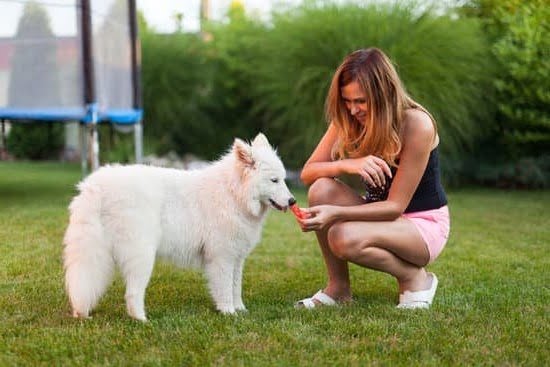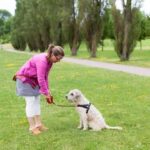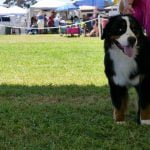Introduction
Teaching your dog to hunt for antler sheds can be a rewarding experience for both you and your pet. Not only will it give your four-legged companion the chance to exercise their sniffer, but you’ll also get to explore the outdoors together as well. With that said, there are several keys to training a successful shed hunting dog; they include proper gear, behavioral reinforcement tactics, environmental preparation and individualized exercises. Doing the right preparation and utilizing the appropriate techniques can ensure that you get the most out of this fun activity and make a reliable four-legged shed hunting partner in no time!
Equipping your pup with proper gear is important because it will allow them to do their job safely, quickly and efficiently. A good tracking or jogging leash will allow you to stay close to them without getting in their way, while an excellent pair of dog booties can help them stay comfortable in rough terrain. As far as behavioral reinforcement goes, one of the primary approaches used is positive reinforcement. By rewarding your pup with treats or praise when they find something (for example an antler shed) it encourages them to seek out similar items in future hunts. Practicing obedience commands as part of reward-based stimulus/response conditioning will be beneficial in teaching them proper behavior from early on.
Preparing the environment before beginning a hunting session is also recommended and should involve scouting areas where antlers may be found such as around water Areas or tree lines, focusing on places where deer might commonly roam during certain times of year based on seasonal patterns or food sources. Finally, individualized exercises tailored specifically towards developing excellent tracking skills should occur throughout each session; this could involve having longer commands like “Find” search for an area/scent or having shorter commands like ‘Verify’ check if something is present in a specific location once they’ve located it with sensory power alone. The key takeaway here is that repetition should take place until they understand these things on an instinctive level which usually occurs after a few days of practice.
Necessary Supplies
Training a dog to find antler sheds is a great way to spend quality time with your pup and experience the joys of exploring the outdoors together. The right equipment can make a big difference for both you and your pup during the process of teaching them their new skill. Before beginning the process, consider gathering these essential supplies:
– A buckle collar or harness – When training a pup, it’s important that they are secured on a simple buckle collar or harness in order to strengthen safety. This also helps ensure that your pup will stay by your side and not wander off.
– An antler – Keeping an antler with you at all times will come in handy when it comes time to train your dog. Finding a fresh ‘shed’ from the last deer hunting season may be difficult and having one on hand while training ensures consistency.
– Training treats – In order to reward good behavior, having treats on-hand is highly encouraged. Many trainers recommend using small pieces of their pup’s regular food as this encourages them without sending them off into sugar highs that could be distracting later down the line.
With all these materials collected, you are now ready to begin training! Start by introducing your dog to the antler and then gradually build up their skills while rewarding desired behaviors along the way. With patience and perseverance, both you and your pup will be excitedly searching for more sheds in no time!
Preparation
Before beginning to train your dog to find antler sheds, it is important to understand your canine companion’s natural instincts. Shed hunting is a highly instinctive behavior for dogs so you want to make sure that your pet is prepared and willing to embark on this unique challenge. It is best if you have already identified and assessed whether or not your pup has the right kind of instincts before starting training.
For example, different breeds of dogs might have more natural abilities than others in terms of sniffing out potential antlers. Working breeds such as Retrievers and Border Collies are particularly good at scent tracking in general. If you have one of these breeds then they may be better suited to finding antler sheds due to their naturally sharp noses. However, any breed can be trained to do it if they are motivated enough! Additionally, assess their physical readiness for shed hunting – do they have enough energy and drive? Is the terrain too challenging for them?
Beyond assessing their instincts and physical aptitude, it is also important that your canine companion knows how to behave on a leash in public places during the hunt. It’s critical that they are well mannered when around other people and animals as some areas may be very heavily trafficked by humans and animals alike.
Step-By-Step Training for Sheds
1. Start by introducing your dog to individual sheds – Reward with treats and/or lots of verbal encouragement every time he finds one.
2. Once your dog has figured out how to find single sheds, move onto bigger training fields scattered with multiple sheds – Make sure to reward appropriately and regularly as you give him more difficult tasks.
3. Practice hiding larger numbers of antlers on the ground while your dog is distracted – When the shed antlers are hidden give your pup a signal that it’s time to begin the search.
4. Move onto teaching him how to find antlers up high in tree branches – Again reward appropriate behavior when he discovers them successfully. If necessary, make use of a lightweight stick or long pole for safely retrieving items from trees as needed.
5. Finally, progress onto teaching your pup how to locate sheds amid thick cover – These areas can be somewhat tricky and make sure you provide extra praise when he works it out; it will help solidify the training even further!
Prime Locations
To maximize your chances of finding shed antler, it is important to identify prime locations where the deer or elk frequent. Prime sites include feeding and bedding areas, pinch points such as narrow passages or between hillsides, water sources, trails and crossings, natural meadows and clearings, logged forest openings and burned ground. These are all places worth exploring for antlers because the deer will be making frequent trips there for foraging food or settling in for the night.
When training a dog to find sheds, take them to these prime locations first until they learn to understand what you are looking for. For example, when visiting water sources near trails and pinch points, familiarize your dog with the smells of shed antlers so that when out in the woods their nose will lead them to the prize. When entering a feeding area take your time, inspect everything from low vegetation like shrubs to high vantage points like trees. Be sure to check under downed logs as well as outcrops of rocks that might hold an antler— especially if they get overlooked by other hunters! Finally always look in large open spaces such as meadows or burned grounds as these areas can also be home to many shed antlers throughout a particular season.
Practical Application
Training a dog to find antler sheds is a great way to optimize your hunting trip and increase the chances of success. First, start by familiarizing your dog with shed antlers by appreciating them and providing them with positive reinforcement when they interact with them. You can do this by having your dog sniff the antlers and praising them when they spend time playing or engaging with them. This will build their confidence in understanding what they should be looking for while on a hunt.
Next, expose your dog to different types of terrain and environments where you feel comfortable having them navigate through. Use scent markers around areas that you sense may have sheds in order to give your pup an idea of where these items could potentially be. While out in the field, make use of beginner level commands such as “go-find” and “stay” so that the two of you are both on the same page. Lastly, always reward your pup for any effort made towards finding and retrieving an antler shed as further reinforcement for connecting that behavior to what their goals are — succeeding on their hunt with you!
Wrap-Up
1. Take time to accustom your dog to the wilderness environment. Allow your dog to roam, explore and enjoy the smells of nature. Through this process, they will become familiar with wildlife, such as deer and elk and learn to recognize the unique scent of antlers.
2. Develop a consistent training routine using positive reinforcement. Provide rewards when your pup responds appropriately in order to build up their anticipation and keep them motivated for the task at hand.
3. Introduce shed hunting gradually and begin by pairing a simple training cue such as “find antlers” with visual cues relating to antler finds in the nearby area – like browsing habits or bedding patterns of deer who typically drop antlers in an area.
4. Practice obedience exercises like ‘sit’, ‘come’, ‘stay’ in controlled situations before moving on to more challenging scenarios – it is important that your dog learns recall skills so you can call them back if needed whilst out in the field.
5. Utilise distractions that represent items they may come across while outdoors – i.e sticks, rocks, leaves etc – give verbal commands associated with these items during distraction training sessions in order to further reinforce their understanding of what you are looking for (antlers).
6. As they start to understand which objects they should retrieve while out hunting, begin teaching simple directional cues pointing them towards likely locations where Sheds could be located (downwind up against trees) getting your pup primed for big finds!
7. Spend plenty of time outside with your pup walking through areas known for antler drops; having plenty of practise finding sheds together should help build confidence both for yourself and for your pup ensuring that eventually you’ll form a tight bond sharing this activity together!

Welcome to the blog! I am a professional dog trainer and have been working with dogs for many years. In this blog, I will be discussing various topics related to dog training, including tips, tricks, and advice. I hope you find this information helpful and informative. Thanks for reading!





